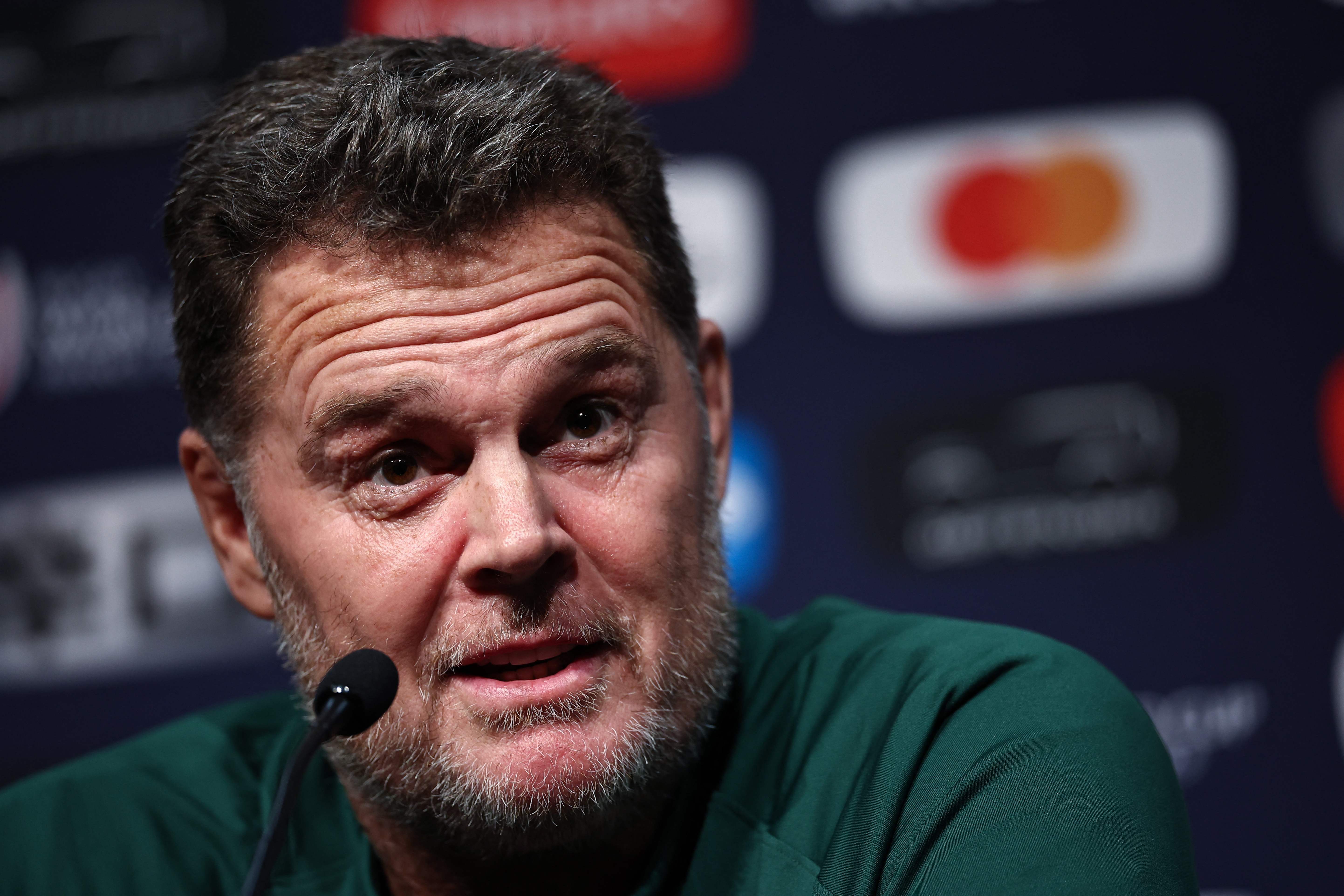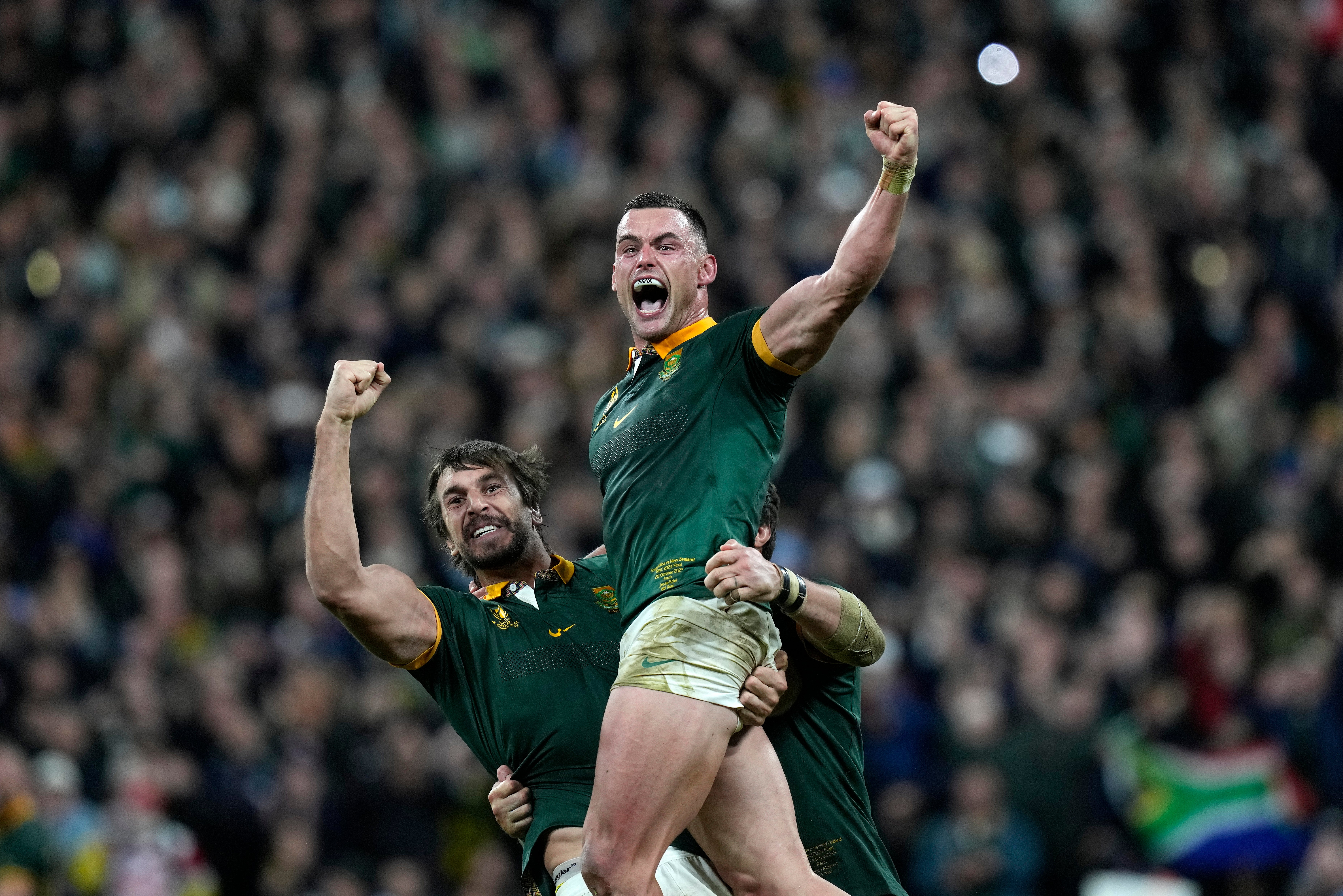The Springboks are on a charm offensive. South Africa have won two World Cups, a British & Irish Lions series and added a rare Rugby Championship crown this summer to further cement their place as the rulers of the rugby realm. Yet outside of their homeland, there is a sense of a side not feted widely, as much loathed as liked.
And everyone wants to be loved. “You don’t want to make other people unhappy,” Springboks supremo Rassie Erasmus admits. “You don’t want people not to like you. You don’t want people to think you are stubborn. You don’t want people to think you are arrogant, especially if you see the characters in this team.
“It has been years, from the Bakkies Botha era, that [people have said] we are bullies who don’t really care what people think. But we do. I care what people think about the players because they are very good guys. They can’t take the blame for what I have done or said or not said. I hope the world sees me trying to change.”
In Erasmus’s six years in charge – some as head coach, some as director of rugby – he has been the fascinating figure at the heart of a transformed team. Having arrived at a low ebb, the 2019 triumph united a side and a nation; four years later, in France last October, the Springboks did it again.

Divisive and driven, Erasmus wishes not to be perceived as dictatorial. His is an environment, he suggests, in which players are given great responsibility. And yet, scan the headlines throughout his tenure and so much stems from Erasmus – from tactical innovations to his strange use of social media. In doing so, he has both managed to create a perception of a side happy to be the villains and taken the pressure off of a squad now seeking an unprecedented third consecutive World Cup win.
But Erasmus is clear that any discussion of his side in the historical pecking order is externally driven. “We have never said we are this great team,” he stresses, speaking at the Springboks’ pre-Autumn Nations Series training camp in Jersey.
“We have never said we are No 1 in the world. We have never been the team that has been challenging our status. You see people say, ‘Are they really No 1?’ We don’t really care if you say that. We are happy with our South Africans respecting us for that. We don’t need a tap on the shoulder for that. We just don’t want to hear other reasons why that wasn’t good enough or that, ‘you are not this great team’.”
The excellent Chasing the Sun documentaries that chronicled South Africa’s two victorious World Cup campaigns have shown, though, that Erasmus has used slights of the past as motivation for his side. “Making it personal, I must tell you that we do,” he explains. “And sometimes we will go and find something that someone said many years ago. You remember how much it hurt that specific day and then that hurt comes back.
“When it becomes personal, that is when our players thrive. I don’t want this to sound like we want to make every side the enemy. That is what we are trying not to do. We play a physical brand but these players are not guys who just want to hate people.”
South Africa begin their November with an encounter with Scotland at Murrayfield, having already achieved one of the year’s big goals. For a side full of double World Cup winners, their record in the Rugby Championship had been curiously poor, one title in Erasmus’s tenure not reflecting their quadrennial prominence. While a slip-up in Argentina prevented a perfect campaign, the Springboks were a class above their rivals, embracing a more ambitious attacking style while not compromising their traditional forward strength.

That evolution gives Erasmus excitement as he sets his sights on leading South Africa through another World Cup cycle. He has managed to keep a squad drawn from broad backgrounds, circumstances and locations close-knit, avoiding the factionalism or infighting that has sabotaged other successful sides.
“I think we are building depth in all positions,” he says. “If you currently look at the squad, there are another 15 players we could have put on the plane who would have represented us well.
“It’s an old cliche but if you are not brutally honest with players then it comes back and bites you. I think that helps a lot and they are just as honest with me. They’ve told me many times, ‘That is the s****iest plan you’ve ever had! Let’s leave that one’. So it goes both ways.

“If you’re brutally honest then you lose a few guys and they say, ‘Oh, f*** you! If you think that way, then I don’t want to be part of that.’ We just don’t always show that in the nice documentaries!”
And Erasmus wants to make clear that both he and his side are far from finished: “So as long as South Africans are happy with what I’m doing, and what we are doing as a team, I’ll stay on. Because I love it.”







